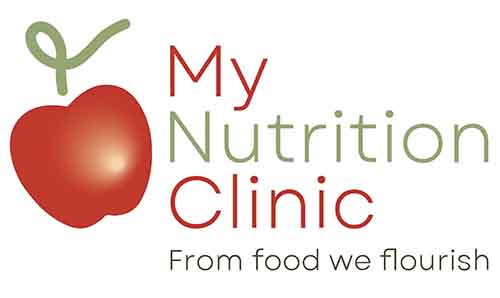Polycystic Ovarian Syndrome (PCOS) is a relatively common hormonal condition, affecting up to 12-18% of females of reproductive age. It is characterised by high levels of insulin and /or androgens (male hormones). The symptoms may include irregular or absent menstrual cycles, excessive facial or body hair growth, acne, scalp hair loss, reduced fertility, obesity, sleep apnoea and anxiety/depression. Nutritional modification is an integral part of treatment for women with PCOS.
Not only can modifications to diet and lifestyle immediately improve quality of life and fertility outcomes, but it can dramatically reduce the long term risks associated with PCOS.
These include:
- insulin resistance
- increased risk of the development of diabetes, especially if women are overweight
- cholesterol and blood fat abnormalities
- cardiovascular disease (heart disease, heart attack and stroke)
- endometrial cancer
Weight loss in PCOS
Among overweight or obese women with PCOS, evidence from clinical trials identifies that a 5-10% weight loss has been associated with improvements in the following:
- Blood lipids
- Levels of testosterone and sex-hormone binding globulin
- Glucose tolerance
- Fasting insulin
- Hirsutism
- Ovulation and menstrual cycle regularity
This modest 5-10% weight loss has been been found to increase insulin sensitivity by up to 70% and is often enough to improve the regularity of ovulation in PCOS patients. In addition, improvements are seen in mood, normal hair growth patterns and acne. However the method of weight loss is important, therefore professional dietetic advice can be helpful. The preferred changes include switching to lower glycaemic index (slow-acting) carbohydrates, a modest reduction in total carbohydrate and an increase in monounsaturated and omega -3 fats. These changes bring benefits to overall metabolic health. In contrast, some popular methods of rapid weight loss may actually worsen the symptoms of PCOS; for example very high protein diets have been associated with increased levels of testosterone and poor weight maintenance.
The exercise effect
Exercise is a very effective lifestyle intervention for women with PCOS. A minimum of 2 ½ hours of moderate physical activity per week is recommended, which conveys added improvements in depressive symptoms and negative body perceptions. Adequate sleep is also an important factor. Vitamin D supplementation may produce benefits in women found to have low Vitamin D levels, however, more conclusive investigations are needed in this area.
To get more help with PCOS, book an appointment with one of our dietitians below.

Tess Prendergast
Dietitian
Tess is an Accredited Practising Dietitian who graduated from Griffith University and grew up in Queensland. Tess is passionate about working with people and building trusting relationships by providing accurate nutrition information that helps people reach their goals. Tess is great at making people feel at ease talking about their diet and health goals and is great at explaining how food and nutrition impact health. Tess has an interest in:
IBS and other gastrointestinal conditions
Weight management
Endometriosis
Women's health
Chronic disease management
Home Enteral Nutrition (HEN)

Aloysa Hourigan
Dietitian
Aloysa has over 30 years of experience as a Dietitian and has worked for Nutrition Australia and running her own private practice in Brisbane. In addition to her dietetic qualifications, Aloysa has a Graduate Diploma in Counselling from the Queensland University of Technology.
Having a counseling qualification alongside expertise in nutrition and food has led Aloysa to focus on the area of eating disorders and has a great deal of compassion and experience providing support for long-term recovery
Specialist areas:
Eating disorders
Gut disorders
Food intolerances




